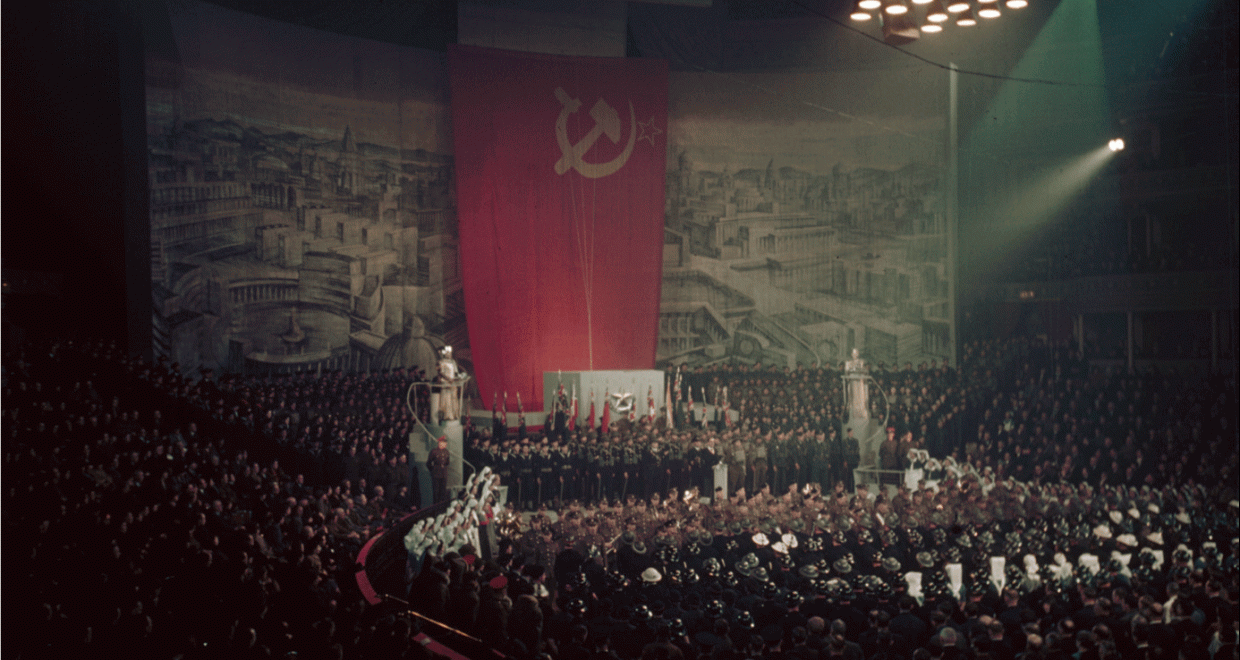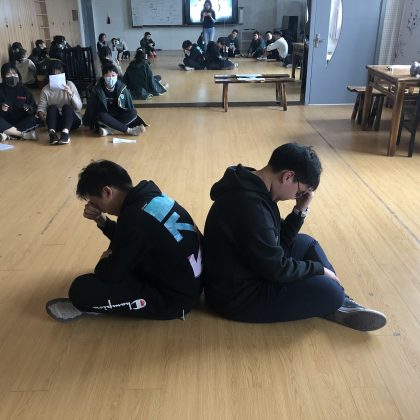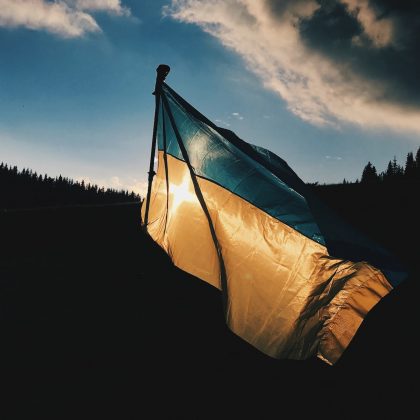‘We are here to salute the Red Army’: Basil Dean and His Russian Adventures
The latest issue of Theatre Survey includes an article by Dr Claire Warden entitled ‘“We are here to salute the Red Army”: Basil Dean and His Russian Adventures’. In this blogpost, Dr Warden explains why Basil Dean’s 1943 large-scale celebration of the Soviet–British alliance against Nazi aggression marks a fascinating episode in the established narratives of British theatre.
British modernist theatre history is often understood through defined narratives, whether it be as the artistically conservative cousin of its more experimental Continental European counterparts, as a scene dominated by beautifully crafted scripts in the naturalist and poetic drama traditions, as a collection of fatuous entertainments, as a vibrant explosion of popular culture or as a rather sluggish body of artworks only just catching up by 1956. While there is some merit in all these readings, my research claims that by looking at more marginal, under-researched theatrical moments, one can uncover a hidden thread of avant-garde experimentalism.
Basil Dean, the primary focus of this paper, was a West End theatre impresario and later head of the Entertainments National Service Association. He might initially seem to be an establishment figure, producing fairly mainstream productions in the heart of Britain’s commercial theatre district. And yet, his canon of work would suggest something different. In this journal article I aim to make a loose connection between his 1926 trip to Soviet Russia where he experienced the ‘vitality’[i] of the stage and his 1943 Royal Albert Hall pageant Salute to the Red Army which celebrated the victories of Britain’s Russian allies.
Dean was one of a number of theatrical figures who made the journey to Russia during the post-Revolutionary period. While many of these individuals felt troubled by politics or anxious about the propagandistic nature of Soviet art, all were impressed by the vibrancy of the Russian stage whether it be the acting styles of Konstantin Stanislavsky (marginalised by the Soviet system but admired enormously by British visitors), Alexander Tairov’s magical reworkings of Eugene O’Neill plays, Vsevelod Meyerhold’s astounding constructivist sets and disciplined biomechanical system, or the well-attended children’s theatres. Many of these travellers, including Dean, brought ideas back to attempt on the British stage.
Fast-forward nearly twenty years and Dean is organising a large-scale pageant which includes in its cast Sybil Thorndike, Laurence Olivier and John Gielgud. Salute to the Red Army was a vast undertaking, and included marching bands, representatives from every facet of the British war effort, a full script with music (Russian and British) and a final speech from the then Foreign Secretary Antony Eden. The fact that Dean pulled it off is testament to his passionate vision and steely organisation.
However what I find particularly exciting about this production is the way it seems to marry (intentionally or otherwise) British pageantry with Russian Living Newspaper, the architecture of the Royal Albert Hall with quasi-constructivist plinths and backdrops, and the celebration of Russia’s wartime achievements with the ongoing successes of the British troops. Its vibrancy and fervour, coupled with formal techniques resembling Communist agitprop, would not have looked out of place in the 1926 Moscow Dean visited nearly twenty years previously. In addition, while commissioned by the British government, it made ministers feel uneasy in its promotion of Communistic ideals. Salute to the Red Army makes for a remarkable addition to growing scholarly interest in the relationship between British and Russian art.
From my own perspective, stumbling across this fascinating production and Dean’s remarkably adventurous life has been a revelatory experience. It confirmed my strengthening belief that in the established narratives of British theatre lie awkward yet vibrantly experimental performance happenings just waiting to be uncovered. And each time a new one comes to light I am forced to reassess my understanding of British theatre, confirming time and time again the transformative power of archival work.
Access the full article free of charge for a limited period here.
[i] Basil Dean, “Roast Beef and Caviare [sic]: Reflections upon the Theatre in England and Russia,” Soviet Union Monthly, May 1926, 90–1, DEA 12/1/31, Basil Dean Archive.
Featured image: Massed workers from the war effort in front of Denis Wreford’s impression of Stalingrad. Salute to the Red Army, 1943. Cat. no. TR706. Used in the article by permission of the Imperial War Museum.






